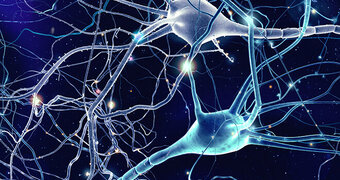Priv.-Doz. Dr. rer. nat. Liane Kaufmann
Kontakt

Akademischer und beruflicher Werdegang
Studium, Sponsion, Promotion, Habilitation
- 04/1994: Sponsion, Hauptfach Psychologie (Universität Wien, Österreich)
- 11/1999: Promotion, Hauptfach Psychologie (Universität Innsbruck, Österreich)
- 10/2007: Habilitation, Venia Docendi für das Gesamtfach Psychologie unter besonderer Berücksichtigung der Entwicklungsneuropsychologie (Universität Salzburg, Österreich)
Berufliche Zusatzausbildungen, Zertifikationen
- 06/1995: Child Neuropsychologist, European Graduate School of Child Neuropsychology, Holland
- 11/1997: Klinische Psychologin, Listeneintragung (Republik Österreich, Bundesministerium für Arbeit, Gesundheit und Soziales
- 06/2001: Allgemein beeidete und gerichtlich zertifizierte Sachverständige des Landesverbandes Tirol und Vorarlberg (Fachgebiet 04.90 Pädagogik und Psychologie, Verschiedenes: Neuropsychologie, auch Stimm- und Sprachstörungen) – aktuell stillgelegt
- 02/2002: Klinische Neuropsychologin, Listeneintragung, Gesellschaft für Neuropsychologie Österreich (GNPÖ), Republik Österreich, Bundesministerium für Arbeit, Gesundheit und Soziales Sowie seit 08/2023 Zertifizierung als Klinische Neuropsychologin GNP, Gesellschaft für Neuropsychologie, Deutschland
- 12/2014: Gerontopsychotherapie, Institut für Alterspsychotherapie und angewandte Gerontologie, Schloss Hofen, Vorarlberg
Berufliche Erfahrungen
- 05/1995 – 10/2000: Klinische Neuropsychologin an der Universitätsklinik für Kinder- und Jugendheilkunde; unterbrochen von 10/1996 – 09/1997 für ein vom BMWF finanziertes einjähriges Stipendium in Kolumbien
- 09/1995 – 09/1996: Klinische Neuropsychologin (Beschäftigungsausmaß 50%), Universitätsklinik für Neurologie, Innsbruck
- 11/1997 – 12/1998: Privatpraxis (Entwicklungsneuropsychologie: Diagnostik und Intervention)
- 02/2001 – 06/2002: Projektmitarbeit EU-Projekt Mathematics and the Brain (HPRN-CT-2000-00076), Universitäten Padua und Triest, Italien
- 07/2002 – 09/2004: Klinische Neuropsychologin, Universitätsklinik für Kinder- und Jugendheilkunde, Innsbruck
- 12/2004 – 08/2005: Projektmitarbeit (geringfügige Beschäftigung), Universitätsklinik für Psychiatrie, Innsbruck; Projekttitel: Funktionelle MRT Pilot Untersuchung zur Lokalisation kognitiver Defizite bei Patienten mit beginnenden dementiellen Abbauprozessen im Vergleich zu gesunden Kontrollpersonen.
- 12/2004 – 08/2005: Klinische Neuropsychologin , Universitätsklinik für Kinder- und Jugendheilkunde, Innsbruck
- 09/2005 – 08/2008: Hertha-Firnberg Nachwuchsstelle (Fonds zur Förderung der wissenschaftlichen Forschung Österreich/FWF), Projekt-Kurztitel: Dyscalculia, functional genetics and cerebral imaging.
- 09/2007 – 02/2008: Vertretungsprofessur „Diagnostik und Differentielle Psychologie“, Psychologisches Institut, Eberhard-Karls-Universität Tübingen, Deutschland
- 03/2009 – 10/2010: Vertretungsprofessur „Psychologische Diagnostik“, Psychologisches Institut, Universität Salzburg, Österreich
- 10/2009 – 10/2012: Assistentenstelle (Ao. Univ.-Prof.), Institut für Angewandte Psychologie, UMIT-Private Universität für Gesundheitswissenschaften, Medizinische Informatik und Technik, Hall in Tirol, Österreich (verantwortlich u.a. für die Gründung und Leitung des Lehr- und Forschungsambulatoriums "Zentrums für Lernen und Lernstörungen")
- 12/2012 – 03/2021: Klinische Neuropsychologin und wissenschaftliche Mitarbeiterin, Gerontopsychiatrische Abteilung, Landeskrankenhaus Hall, Hall in Tirol, Österreich
- 04/2021 – 03/2023: Senior Scientist, Institut für Psychologie, Universität Innsbruck, Innsbruck, Österreich
- seit 04/2023: Leiterin der Klinischen Neuropsychologie der Klinik für Neurologie, Klinikum Ernst von Bergmann, Potsdam
Forschungsschwerpunkte
Meine Forschungsinteressen betreffen sowohl die angewandte klinisch-diagnostische Forschung als auch die neurowissenschaftliche Grundlagenforschung. Im Vordergrund steht dabei die Skizzierung neurokognitiver und sozio-emotionaler Prozesse bei Gesunden und spezifischen Patientengruppen. Vor allem in Hinblick auf ein besseres Verständnis von neurokognitiven Entwicklungsprozessen (bei typischem und atypischem Verlauf) finde ich die Kombination von behavioralen Untersuchungsverfahren und bildgebenden Verfahren (z.B. der strukturellen Magnet-Resonanz-Tomografie) sehr vielversprechend.
Die inhaltlichen Schwerpunkte meiner Forschungsinteressen betreffen die höheren kognitiven Funktionen (v.a. Zahlenverarbeitung, Exekutive Funktionen, Aufmerksamkeits- und Gedächtnisfunktionen) sowie die Emotionsverarbeitung (z.B schulspezifische Ängste wie Rechenangst).
Aktuelle Schwerpunkte meiner Forschungstätigkeiten betreffen (i) diagnostische Fragestellungen der klinischen Psychologie (v.a. höhere kognitive Funktionen über die Lebensspanne) und (ii) die Evaluation spezifischer Interventionsmethoden (Psychoedukation, EEG-Neurofeedback) bei Gesunden und Patienten (z.B. bei Aufmerksamkeitsstörungen/ADHS, umschriebenen Entwicklungsstörungen schulischer Fertigkeiten, Autismus-Spektrum-Störungen, neurodegenerativen Erkrankungen).
Funktionen in Fachgremien
- seit 01/2012: Geschäftsführende Herausgebering der Zeitschrift „Lernen und Lernstörungen“ (Hogrefe Verlag, Bern)
- seit 12/2021: Mitglied des Scientific Supervisory Board (SAB) der Federation of the European Societies of Neuropsychology (FESN)
Publikationen
(A) Monographs
- Landerl, K., Vogel, S., & Kaufmann, L. (2022) (4th edition). Dyscalculia. UTB: Reinhardt. (1st edition => Landerl & Kaufmann, 2008) [German language]
- Kaufmann, L. (2007). Developmental Aspects of Numerical Cognition and Executive Functions: Fundamentals, Diagnosis and Intervention. Habilitation: postdoctoral cumulative thesis to qualify as a professor and to achieve the postdoctoral lecture qualification for the full subject of psychology (under special consideration of ‘developmental neuropsychology’). University of Salzburg, Salzburg, Austria.
- Kaufmann, L. (1999). Number processing and arithmetic in patients diagnosed with Dementia in Alzheimer Disease. Dissertation. Universität Innsbruck. [German language]
- Kaufmann, L. (1994). Influence of hormonal factors on cognition. Diploma thesis. University of Vienna, Vienna, Austria. [German language]
(B) Editor and Guest Editor
- Kaufmann, L. (editor in chief), von Aster, M. (co-editor in chief), Corvacho del Toro, I., Fischer, U., Kucian, K., Lorenz, J.-H., Löffler, C., Nolte, M., & Schulte-Körne, G. (Eds.) (seit 2012). Lernen und Lernstörungen/Learning and Learning Disorders. Bern: Hogrefe.
- Gliksman, Y., Kaufmann, L, & Henik, A. (editors) (in preparation). Developmental dyscalculia.Cambridge: Elsevier Inc.
- Kaufmann, L., Zamarian, L., Wood, G., & Klein, E. (guest editors) (2022). Neurocognitive signatures of math (learning) across the lifespan and their interrelation with other aspects of cognition and emotion. Brain Sciences. [https://www.mdpi.com/journal/brainsci/special_issues/Math_Learning]
- Pletschko, T. & Kaufmann, L. (guest editors) (2022). Participation at school and university despite neuropsychological deficiencies. Zeitschrift für Neuropsychologie, 33(4).
- Kaufmann, L. (guest editor) (2022). Lebenslanges Lernen. Lernen und Lernstörungen, 11(4).
- Fischer, M., Kaufmann, L., & Domahs, F. (guest editors) (2012). Handy numbers: Finger counting and numerical cognition. Special issue of “Frontiers in Cognition”, Vol. 2.
- Rubinsten, O., Kaufmann, L., & Henik, A. (guest editors) (2011). Development of number representations in the brain. Special issue of “Developmental Neuropsychology”, Vol. 36(6).
- Dowker, A., & Kaufmann, L. (guest editors) (2009). Atypical Development of Numerical Cognition. Neurocognitive Characteristics of Developmental Dyscalculia. Special issue of “Cognitive Development”, Vol. 24(4).
- Kaufmann, L., & Dowker, A. (guest editors) (2009). Typical Development of Numerical Cognition: Behavioral and Neurofunctional Issues. Special issue of “Journal of Experimental Child Psychology”, Vol. 103(4).
- Kaufmann, L., Nuerk, H.-C., Konrad K., & Willmes, K. (2007) (eds.). Kognitive Entwicklungsneuropsychologie. Göttingen: Hogrefe.
(C) Development and validation of psychological tests
- Kaufmann, L., Pastore, N., Moeller, K., Landerl, K., Mazzoldi, M., & Salandin, M. (2008). BVN/NPS 5-11: Neuropsychological Screening for 5- to 11-year-old children. Göttingen: Hogrefe. [German language]
- Kaufmann, L., Nuerk, H.-C., Graf, M., Krinzinger, H., Delazer, M., & Willmes, K. (2009). TEDI- MATH: Test for the assessment of numerical and calculation skills in 4- to 8-year-old children. Bern: Hans-Huber. [German language]
(D) Publications in peer-reviewed journals
- Kaufmann, L., Janssen, R., Gruenbaum, T., et al., Weiss, E., & Marksteiner, J. (submitted). Predictive value of somatic and functional variables for cognitive deterioration in early stages of Alzheimer’s Disease: Evidence from a longitudinal data set (PRODEM-Austria).
- Kaufmann, L., von Aster, M., Concepcion, E., & Schoefl, M. (2023). Equitable opportunities for students with neurodevelopmental disorders? A preliminary framework for fostering academic and social participation. Archives of Pediatrics, 8:261. [DOI: 10.29011/2575- 825X.100261]
- Kaufmann, L., Kucian, K., von Aster, M., Weiss, E.M., Schweiger-Wachsmuth, D., & Christiansen, H. (2022). Partizipation von Studierenden mit neurokognitiven Beeinträchtigungen am Beispiel von ADHS und spezifischen Lernstörungen. Zeitschrift für Neuropsychologie / Journal of Neuropsychology, 33(4), 213-225. [DOI:10.1024/1016- 264X/a000364]
- Weiss, E.M., Kaufmann, L., Ninaus, M., & Canazei, M. (2022). The impact of distance learning during COVID-19 on mental health of students. Lernen und Lernstörungen / Learning and Learning Disorders, 11(3), 167-179. [Article in German, English abstract]
- Kaufmann, L., Ninaus, M., Weiss, E.M., Gruber, W. & Wood, G. (2022). Self-efficacy matters: About the influence of students’ perceived self-efficacy on statistics anxiety and performance. Annals of New York the Academy of Sciences, 1-11. https:/doi.org/10.1111/nyas.14797
- Goebel, S.M., Terry, R., Klein, E., Hymers, M., & Kaufmann, L. (2022). Impaired arithmetic fact retrieval in an adult with developmental dyscalculia: Evidence from behavioral and functional brain imaging data. Brain Sciences, 12: 735. [DOI: 10.3390/brainsci 12060735]
- Kaufmann, L., Moeller, K., & Marksteiner, J. (2021). Pain and associated neuropsychiatric symptoms in patients suffering from dementia: Challenges at different levels and proposal of a conceptual framework. Journal of Alzheimer’s Disease, 83, 1003-1009. [DOI:10.3233/JAD- 210263]
- Bramboeck, V., Moeller, K., Marksteiner, J., & Kaufmann, L. (2020). Loneliness and burden perceived by family caregivers of patients with Alzheimer Disease. American Journal of Alzheimer’s Disease & Other Dementias, 35, 1-8.
- Kaufmann, L., von Aster, M., Göbel, S.M., Marksteiner, J., & Klein, E. (2020). Developmental dyscalculia in adults: Current issues and open questions for future research. Learning and Learning Disorders / Lernen und Lernstörungen, 9(2), 126-137. [DOI:10.1027/a000001]
- Kaufmann, L., Wood, G., Robertson, M., Marksteiner, J., & Kober, S. (2019). EEG- neurofeedback as a training method for cognitive and non-cognitive functions in early dementia: A case report. Learning and Learning Disorders / Lernen und Lernstörungen, 8(3), 179-189. [DOI:10.1024/2235-0977/a000274]
- Kaufmann, L., Huber, S., Mayer, D., Moeller, K., & Marksteiner, J. (2018). The CERAD neuropsychological assessment battery is sensitive to alcohol-related cognitive deficiencies in elderly patients: A retrospective matched case-control study. Journal of the International Neuropsychological Society, 24, 360-371. [Article in German, English abstract]
- Ninaus, M., Moeller, K., Kaufmann, L., Fischer, M.H., Nuerk, H.-C., & Wood, G. (2017). Cognitive mechanisms underlying directional and non-directional spatial-numerical associations across the lifespan. Frontiers in Psychology, 8: 1421.
- Weiss, E.M., Gschaidbauer, B., Kaufmann, L., Fink, A., Schulter, G., Mittenecker, E., & Papousek, I. (2017). Age-related differences in inhibitory control and memory updating in boys with Asperger syndrome. European Archive of Psychiatry and Clinical Neurosciences, 267, 651-659.
- Wehrle, F., Kaufmann, L., Benz, L.D., Huber, R., Tuura, R., O’Gorman, R.L., Latal, B., & Hagman, C.F. (2016). Very preterm adolescents show impaired performance with increasing demands In executive function tasks. Early Human Development, 92, 37-43.
- Von Rhein, M., Kugler, J., Dimitropoulus, A., Liamlahi, R., Knirsch, W., Latal, B., & Kaufmann, L. (2015). Persistence of visuo-constructional and executive deficits in adolescents after open- heart surgery. Research in Developmental Disabilities, 36, 303-310.
- Mayer, D., Diwo, A., Imarhiagbe, D., Erler, S., Marksteiner, J., & Kaufmann, L. (2015). About the differential diagnostic utility of the CERAD neuropsychological assessment battery in patients with mild cognitive impairment with and without depressive symptomatology: A retrospective study. Journal of Neuropsychology / Zeitschrift für Neuropsychologie, 26(2), 131-142. [DOI:10.1024/1016-264X/a000150] [Article in German, English abstract]
- Klein, E., Moeller, K., Kiechl-Kohlendorfer, U., Kremser, C., Starke, M., Cohen Kadosh, R., Pupp-Peglow, U., Schocke, M., & Kaufmann, L. (2014). Processing of intentional and automatic number magnitudes in children born prematurely – Evidence from fMRI. Developmental Neuropsychology, 39(5), 342-364.
- Schöfl, M., Beitel, C., Kloo, D., & Kaufmann, L (2014). Validity of a German version of the Behavior Rating Inventory of Executive Functions (BRIEF) in a child sample with and without Attention-Deficit/Hyperactivity-Disorder (ADHD). Diagnostica, 60(4), 181-196. [DOI:10.1026/0012-1924/a000103] [Article in German, English extended abstract]
- Schöfl, M., Kloo, D., & Kaufmann, L. (2014). Planning Skills in Elementary School Children with ADHD and Dyslexia: A Comparison of Parent Ratings and Neuropsychological Test Performance. Learning and Learning Disorders / Lernen und Lernstörungen, 3, 1-21. [Article in German, English abstract]
- Goebel, S.M., Moeller, K., Pixner, S., Kaufmann, L., & Nuerk, H.-C. (2014). Language affects symbolic arithmetic in children: The case of number word inversion. Journal of Experimental Child Psychology, 119, 17-25.
- Weiss, E.M., Gschaidbauer, B., Kaufmann, L., Papousek, I., & Fink, A. (2014). Creativity in children and adolescents with Asperger syndrome. Kindheit und Entwicklung, 23(1), 13-22. [Article in German, English abstract]
- Klein, E., Moeller, K., Kiechl-Kohlendorfer, U., Kremser, C., Starke, M., Cohen Kadosh, R., Pupp-Peglow, U., Schocke, M., & Kaufmann, L. (2014). Processing of intentional and automatic number magnitudes in children born prematurely – Evidence from fMRI. Developmental Neuropsychology, 39(5), 342-364.
- Kaufmann, L., Zotter, S., Pixner, S., Starke, M., Haberlandt, E., Steinmayr-Gensluckner, M., Egger, K., Schocke, M., Weiss, E.M., & Marksteiner, J. (2013). Brief report: CANTAB performance and brain structure in pediatric patients with Asperger syndrome. Journal of Autism and Developmental Disabilities, 43, 1483-1490.
- Starke, M., Kiechl-Kohlendorfer, U., Kucian, K., Pupp Peglow, U., Kremser, C., Schocke, M., & Kaufmann, L. (2013). Brain structure, number magnitude processing and math proficiency in 6- to 7-year-old children born prematurely: A voxel-based morphometry study. NeuroReport, 24(8), 419-424.
- Pixner, S., & Kaufmann, L. (2013). Exam anxiety, school achievement and quality of life in third and sixth grade students. Learning and Learning Disorders / Lernen und Lernstörungen, 2(2), 111-124. [Article in German, English extended abstract]
- Cohen Kadosh, R., Dowker, A., Heine, A., Kaufmann, L., & Kucian, K. (2013). Interventions for improving numerical skills: Present and future. Trends in Neuroscience and Education, 2, 85-93.
- Kaufmann, L., Mazzocco, M., Dowker, A., von Aster, M., Göbel, S.M., Grabner, R.H., Henik, A., Jordan, N.C., Karmiloff-Smith, A., Kucian, K., Rubinsten, O., Szucs, D., Shalev R., & Nuerk, H.-C. (2013). Dyscalculia from a developmental and differential perspective. Frontiers in Developmental Psychology, 4: 516.
- Klein, E., Bahnmueller, J., Mann, A., Pixner, S., Kaufmann, L., Nuerk, H.-C., & Moeller, K. (2013). Language influences on numerical development – Inversion effects on multi-digit number processing. Frontiers in Developmental Psychology, 4: 480.
- Pixner, S., Moeller, K., Nuerk, H.-C., Hermanova, V., & Kaufmann, L. (2011). Whorf reloaded: Language effects on non-verbal number processing in first grade – a trilingual study. Journal of Experimental Child Psychology, 108, 371-382.
- Krinzinger, H., Gregoire, J., Desoete, A., Kaufmann, L., Nuerk, H.-C., & Willmes, K. (2011). Differential language effects on numerical skills in second grade. Journal of Cross-Cultural Psychology, 42(4), 614-629.
- Helmreich, I., Zuber, J., Pixner, S., Kaufmann, L., Nuerk, H.-C., & Moeller, K. (2011). Language effect on children’s nonverbal number line estimations. Journal of Cross-Cultural Psychology, 42(4), 598-613.
- Kaufmann, L., Wood, G., Rubinsten, O., & Henik, A. (2011). Meta-analysis of developmental fMRI studies investigating typical and atypical trajectories of number processing and calculation. Developmental Neuropsychology, 36, 763-787.
- Kaufmann, L., Pixner, S., Starke, M., Zotter, S., Köhle, J., Meraner, D., Kremser, C., Egger, K., Schocke, M., & Hofer, S. (2011). Neurocognition and brain structure in pediatric patients with type 1 diabetes. Journal of Pediatric Neuroradiology, 1, 25-35.
- Moeller, K., Pixner, S., Zuber, J., Kaufmann, L., & Nuerk, H.-C. (2011). Early place-value understanding as a precursor for later arithmetic performance – a longitudinal study on numerical development. Research in Developmental Disabilities, 32, 1837-1851.
- Pixner, S., Zuber, J., Hermanova, V., Kaufmann, L., Nuerk, H.-C., & Moeller, K. (2011). One language, two number-word systems and many problems: Numerical cognition in the Czech language. Research in Developmental Disabilities, 32, 2683-2689.
- Mann, A., Moeller, K., Pixner, S., Kaufmann, L., & Nuerk, H.-C. (2011). Attentional strategies in place-value integration: A longitudinal study on two-digit number comparison. Journal of Psychology, 219, 42-49.
- Kaufmann, L., Pixner, S., & Goebel, S. (2011). Finger usage and arithmetic in adults with math difficulty: A case report. Frontiers in Cognition, 2, 254.
- Kaufmann, L., Zieren, N., Zotter, S., Karall, D., Scholl-Bürgi, S., Haberlandt, E., & Fimm, B. (2010). Predictive validity of attentional functions in differentiating children with and without ADHD: a componential analysis. Developmental Medicine & Child Neurology, 52(4), 371-378.
- Antonell, A., Del Campo, M., Magano, L.F., Kaufmann, L., Martínez de la Iglesia, J., Gallastegui, F., Flores, R., Schweigmann, U., Fauth, C., Kotzot, D., & Pérez-Jurado, L.A. (2010). Partial 7q11.23 deletions further implicate GTF2I and GTF2IRD1 as the main genes responsible for the Williams-Beuren syndrome neurocognitive profile. Journal of Medical Genetics, 47, 312-320.
- Krinzinger, H., Kaufmann, L., & Willmes, K. (2009). Math anxiety and math ability in early primary school years. Journal of Psychoeducational Assessment, 27, 206-225.
- Wood, G., Ischebeck, A., Koppelstaetter, F., Gotwald, T., & Kaufmann, L. (2009). Developmental trajectories of magnitude processing and interference control: An fMRI study. Cerebral Cortex, 19(11), 2755-2765.
- Moeller, K., Pixner, S., Kaufmann, L., & Nuerk, H.-C. (2009). Children's early mental number line: logarithmic or rather decomposed linear? Journal of Experimental Psychology, 103, 503- 515.
- Kaufmann, L., Vogel, S.E., Kremser, C., Schocke, M., & Wood, G. (2009). Developmental dyscalculia: Compensatory mechanisms in left intraparietal regions in response to nonsymbolic magnitudes. Behavioral and Brain Functions, 5: 35.
- Moeller, K., Neuburger, S., Kaufmann, L., Landerl, K., & Nuerk, H.-C. (2009). Basic number processing deficits in developmental dyscalculia. Evidence from Eye-tracking. Cognitive Development, 24(4), 371-386.
- Kaufmann, L., Vogel, S., Starke, M., Kremser, C., & Schocke M. (2009). Numerical and non- numerical ordinality processing in children with and without developmental dyscalculia: Evidence from fMRI. Cognitive Development, 24(4), 486-494.
- Kaufmann, L., Vogel, S., Wood, G., Kremser, C., Schocke, M., Zimmerhackl, L.-B., & Koten, J.W. (2008). A developmental fMRI study of nonsymbolic numerical and spatial processing. Cortex, 44, 376-385.
- Kaufmann, L., & Nuerk, H.-C. (2008). Basic number processing deficits in ADHD: a broad examination of elementary and complex number processing skills in 9 to 12 year-old children with ADHD-C. Developmental Science, 11(5), 692-699.
- Kaufmann, L. (2008). Dyscalculia: Neuroscience and education. Educational Research, 50, 163-175.
- Kaufmann, L., Ischebeck, A., Weiss, E., Koppelstaetter, F., Siedentopf, C., Vogel, S.E., Gotwald, T., Marksteiner, J., & Wood, G. (2008). An fMRI study of the Numerical Stroop Task in Individuals with and without MCI. Cortex, 44, 1248-1255.
- Krinzinger, H., Kaufmann, L., Dowker, A., Thomas, G., Graf, M., Nuerk, H.-C., & Willmes, K. (2007). German version of the math anxiety questionnaire FRA for 6- to 9-year-old children. Zeitschrift für Kinder- und Jugendpsychiatrie und Psychotherapie, 35(5), 341-451. [Article in German, English abstract]
- Kaufmann, L., Koppelstaetter, F., Siedentopf, C., Haala, I., Haberlandt, E., Zimmerhackl, L.- B., Felber, S., & Ischebeck, A. (2006). Neural correlates of a number-size interference task in children. NeuroReport, 17, 587-591.
- Kaufmann, L., & Nuerk, H.-C. (2006). Interference effects of a numerical Stroop paradigm in 9 to 12 year-old ADHD children. Child Neuropsychology, 12, 223-243.
- Zotter, S., Haberlandt, E., Gotwald, T., & Kaufmann, L. (2006). Funktionelle Neuroplastizität bei postpartalen posterioren Läsionen: zwei Fallberichte. Zeitschrift für Neuropsychologie, 17, 225-237.
- Kaufmann, L., Delazer, M., Pohl, R., Semenza, C., & Dowker, A. (2005). Effects of a specific numeracy educational program in preschool children: a pilot study. Educational Research and Evaluation, 11, 405-431.
- Kaufmann, L., Koppelstaetter, F., Delazer, M., Siedentopf, C., Rhomberg, P., Golaszewski, S., Felber, S., & Ischebeck, A. (2005). Neural correlates of distance and congruity effects in a numerical Stroop task: an event-related fMRI study. NeuroImage, 25, 888-898.
- Delazer, M., Ischebeck, A., Domahs, F., Zamarian, A., Koppelstaetter, F., Siedentopf, C.M., Kaufmann, L., Benke, T., & Felber, S. (2005). Learning by strategies and learning by drill – evidence from an fMRI study. NeuroImage, 25, 838-849.
- Kaufmann, L., & Nuerk, H.-C. (2005). Numerical development: current issues and future perspectives. Psychology Science (Special Issue: Brain and Number), 47, 142-170.
- Kaufmann, L., Lochy, A., Drexler, A., & Semenza, C. (2004). Deficient arithmetic fact retrieval – storage or access problem? A case study. Neuropsychologia, 42, 482-496.
- Nuerk H.-C., Kaufmann L., Zoppoth S, & Willmes K. (2004). On the development of the mental number line: more or less or never holistic with increasing age? Developmental Psychology, 40(6), 1199-1211.
- Kaufmann, L., Handl, P., & Thöny, B. (2003). Evaluation of a numeracy intervention program focusing on basic numerical knowledge and conceptual knowledge: a pilot study. Journal of Learning Disabilities, 36, 564-573.
- Kaufmann, L. (2002). More evidence for the role of the central executive in retrieving arithmetic facts – a case study of severe developmental dyscalculia. Journal of Clinical and Experimental Neuropsychology, 24, 302-310.
- Kaufmann, L., Montanes, P., Jacquier, M., Matallana, D., Eibl, G., & Delazer, M. (2002). About the relationship between basic numerical processing and arithmetics in Alzheimer´s disease – a follow-up study. Brain and Cognition, 48, 398-405.
(E) Miscellaneous
Invited commentaries
- Kucian, K., & Kaufmann, L. (2009). A developmental model of number representations. Behavioral and Brain Sciences, 32, 340-341 [doi:10.1017/S0140525X09990069]. A commentary to Cohen Kadosh, R., & Walsh, V. (2009). Numerical representations in the parietal lobes: Abstract or not abstract? Behavioral and Brain Sciences, 32, 313-373.
- Kaufmann, L. & von Aster, M. (2017). Genome editing: Wollen wir das wirklich? Lernen und Lernstörungen, 6(3), 162. [Rubrik: Wissen - kurz notiert]
Editorials
- Corvacho, I., & Kaufmann, L. (2023). Frühe Diagnose und Förderung: Testen in der Elementar- und Primarstufe. Lernen und Lernstörungen, 12(4), 1-2.
- von Aster, M., & Kaufmann, L. (2023). Die digitale Transformation: Likes und dislikes. Lernen und Lernstörungen, 12(2), 1-2.
- Corvacho, I., von Aster, M., & Kaufmann, L. (2023). Expert_innen für Lernstörungen an Schulen? Lernen & Lernstörungen, 12(1), 1-2.
- Kaufmann, L. (2022). Lebenslanges Lernen. Lernen und Lernstörungen, 11(4), 1-2
- Von Aster, M., & Kaufmann, L. (2022). 10 Jahre Lernen und Lernstörungen: Ein Blick „zurück in die Zukunft“. Lernen und Lernstörungen, 11(1), 1-3.
- Kaufmann, L., & von Aster, M. (2022). …und nun auch noch Krieg. Lernen und Lernstörungen, 11(2), 1-2.
- Kaufmann, L. & von Aster, M. (2021). Der Transfer zwischen Forschung und Praxis: Ein Dauerbrenner. Lernen und Lernstörungen, 10(2), 1-3.
- Kaufmann, L. & von Aster, M. (2020). Life-long learning. Lernen und Lernstörungen, 9(2), 83- 84.
- Von Aster, M., Kaufmann, L., Corvacho del Toro, I. et al. (2020). Lerntherapie für die Welt. Lernen und Lernstörungen, 9(3), 149-150.
- Kaufmann, L. & von Aster, M. (2017). ADHS: Eine komplexe und facettenreiche Entwicklungsstörung. Lernen und Lernstörungen, 6(3), 111-112.
- Kaufmann, L., Lipka, M., Chaudhuri, U. et al. (2014). Endlich Realität: Wissenschaft und Anwendung im Dialog. Lernen und Lernstörungen, 3(1), 5-6.
- Von Aster, M., & Kaufmann, L. (2014). ADHS – was ist das eigentlich? Lernen und Lernstörungen, 3(2), 83-84.
- Kaufmann, L., & von Aster, M. (2014). Neuroplastizität und Lernen über die Lebensspanne. Lernen und Lernstörungen, 3(4), 323-325.
- Kaufmann, L., & von Aster, M. (2013). Geistig fit im Alter? Lernen als lebenslanger Entwicklungsprozess. Lernen und Lernstörungen, 2(3), 129-130.
- Kaufmann, L. (2012). Anregung der Diskussion zwischen Wissenschaftlern und Anwendern. Lernen und Lernstörungen / Learning and Learning Disorders, 1(3), 155. [German language]
- Kaufmann, L., Pixner, S., Schulte-Körne, M., & von Aster, M. (2012). Warum eine neue Zeitschrift? Lernen und Lernstörungen, 1, 5-6.
- Fischer, M., Kaufmann, L., & Domahs, F. (2012). Finger counting and numerical cognition. Frontiers in Cognition, 3: 108 [DOI 10.3389/fpsyg.2012.00108]
- Kaufmann, L., & Dowker, A. (2009). Typical development of numerical cognition: Behavioral and neurofunctional issues. Journal of Experimental Child Psychology, 103(4), 395-399. [DOI 10.1016/j.jecp.2009.05.003]
- Dowker, A., & Kaufmann, L. (2009). Atypical development of numerical cognition: Characteristics of developmental dyscalculia. Cognitive Development, 24(4), 339-342. [DOI 10.1016/j.cogdev.2009.09.010]
Invited contributions (book chapters and articles in scientific journals)
- Klein, E., & Kaufmann, L. (in preparation). How brain imaging findings may inform theoretical concepts of developmental dyscalculia. In: Gliksman, Y., Kaufmann, L., & Henik, A., (in preparation). Developmental Dyscalculia. Cambridge: Elsevier Inc.
- Kaufmann, L., & von Aster, M. (2022). Rechenstörungen über die Lebensspanne: Konzeptuelle Grundlagen und praktische Aspekte. Psychologie in Österreich, 3, 254-262.
- Von Aster, M., Kaufmann, L., McCaskey, U., & Kucian, K. (2021). Rechenstörungen im Kindes- und Jugendalter. In: Fegert, J.M., Eggers, C., Resch, F. et al., (Hrsg.) (3. Aufl.). Psychiatrie und Psychotherapie des Kindes- und Jugendalters. Berlin, Heidelberg: Springer. DOI:10.1007/978-3-662-49289-5_120-1
- Klein, E., Jung, S., & Kaufmann, L. (2021). A neuropsychological perspective on language and number processing. In: Fritz, A, Gürsoy, E., & Herzog, M. (Eds.), Diversity dimensions in mathematics and language learning: Perspectives on culture, education and multilingualism. Berlin: DeGruyter. DOI:10.1515/9783110661941-003
- Kaufmann, L. & von Aster, M. (2020). Umschriebene Entwicklungsstörungen schulischer Fertigkeiten. In: Kölch, M., Rassenhofer, M., & Fegert, J.M. (Hrsg.), Klinikmanual für Kinder- und Jugendpsychiatrie und –psychotherapie (S. 435-454). Berlin, Heidelberg: Springer. DOI:10.1007/978-3-662-58418-7_25
- Moeller, K., Klein, E., & Kaufmann, L. (2017). Bedeutung der neurokognitiven und bildgebenden Befunde für ein besseres Verständnis von Rechenschwierigkeiten. In: Fritz, A., Schmidt, S. & Ricken, G. (Hrsg.) (3. Auflage). Handbuch Rechenschwäche: Lernwege, Schwierigkeiten und Hilfen bei Dyskalkulie (S. 80-95). Weinheim: Beltz.
- Kaufmann, L., Kucian, K., & von Aster, M. (2015). Development of the numerical brain. In: R. Cohen-Kadosh, & A. Dowker (Eds.), Handbook of Mathematical Cognition (pp. 485-501). Oxford: University Press.
- Kucian, K., Kaufmann, L., & von Aster, M. (2015). Brain correlates of numerical abilities. In: R. Cohen-Kadosh, & A. Dowker (Eds.), Handbook of Mathematical Cognition (pp. 732-744). Oxford: University Press.
- Kaufmann, L., Handl, P., Delazer, M., & Pixner, S. (2013). Wie Kinder rechnen lernen und was ihnen dabei hilft. Eine kognitiv-neuropsychologische Perspektive. In M. von Aster & J.H. Lorenz (2. Auflage), Rechenstörungen bei Kindern (S. 231-258). Göttingen: Vandenhoeck & Ruprecht.
- Kaufmann, L., & Pixner, S. (2012). New approaches to teaching early number skills and to remediate number fact dyscalculia. In D. Molfese, Z. Breznitz, V. Berninger & O. Rubinsten (Eds.) Reading, Writing, Mathematics And The Developing Brain: Listening To Many Voices (pp. 277-294). Heidelberg, New York, London: Springer.
- Kaufmann, L., Proksch, K., & Mrakotsky, C. (2011). Entwicklungsneuropsychologie. In: J. Lehrner, G. Pusswald, E. Fertl, W. Strubreither, & I. Kryspin-Exner (Hrsg.) (2. Auflage), Klinische Neuropsychologie: Grundlagen–Diagnostik-Rehabilitation. Wien/New York: Springer.
- Kaufmann, L., & Kain, W. (2011). Ausgewählte Störungsbilder in Kindheit und Jugend. In J. Lehrner, G. Pusswald, E. Fertl, W. Strubreither, I. Kryspin-Exner (Hrsg.) (2. Auflage), Klinische Neuropsychologie: Grundlagen – Diagnostik - Rehabilitation. Wien, New York: Springer Verlag.
- Kaufmann, L., & Kain, W. (2011). Neuropsychologische Diagnostik und Intervention in Kindheit und Jugend. In J. Lehrner, G. Pusswald, E. Fertl, W. Strubreither, I. Kryspin-Exner (Hrsg.) (2. Auflage), Klinische Neuropsychologie: Grundlagen – Diagnostik - Rehabilitation. Wien, New York: Springer.
- Kaufmann, L. (2011). Book review: The Oxford handbook of eye movements“, edited by SP Liversedge, ID Gilchrist, S Everling; Oxford University Press 2011. Perception, 40, 1393-1394.
- Pixner, S., & Kaufmann, L. (2008). Wächst sich Dyskalkulie wieder aus? Eine Einzelfalldarstellung bei Dyskalkulie im Jugendalter. Prävention und Rehabilitation, 20, 131- 139.
- Kain, W., Landerl, K., & Kaufmann, L. (2008). Komorbidität bei ADHS. Monatsschrift für Kinderheilkunde, 156, 757-767.
- Nuerk, H.-C. & Kaufmann, L. (2008). Dyskalkulie. In S. Gauggel und M. Herrmann (Hrsg), Handbuch der Neuro- und Biopsychologie (S. 598-603). Göttingen: Hogrefe.
- Kaufmann, L. (2008). Neural correlates of number processing and calculation: developmental trajectories and educational implications. In A. Dowker (Ed.), Mathematical Difficulties: Psychology and Intervention. London: Elsevier.
- Handl, P., & Kaufmann, L. (2008). Numerische Frühförderung: Wie spezifisch sind Interventionseffekte? Prävention und Rehabilitation, 20, 140-148.
- Kaufmann, L. & Nuerk, H.-C. (2008). Therapie der Dyskalkulie. In S. Gauggel und M. Herrmann (Hrsg), Handbuch der Neuro- und Biopsychologie (S.760-764). Göttingen: Hogrefe- Verlag.
- Kaufmann, L., & Nuerk, H.-C. (2007). Zahlenverarbeitung: Typische und atpyische Entwicklungsverläufe. In L. Kaufmann, H.-C. Nuerk, K. Konrad & K. Willmes (Hrsg), Kognitive Entwicklungsneuropsychologie (S. 383-398). Göttingen: Hogrefe.
- Kaufmann, L., & Nuerk, H.-C. (2006). Die Entwicklung des Rechnens und dessen Störungen: Genese, Modelle, Diagnostik und Intervention. Zeitschrift für Legasthenie und Dyskalkulie, 2, 11-16.
- Galonska, S., & Kaufmann, L. (2006). Intervention bei entwicklungsbedingter Dyskalkulie. Sprache, Stimme, Gehör: Zeitschrift für Kommunikationsstörungen, 30, 171-178.
- Krinzinger, H., & Kaufmann, L. (2006). Rechenangst und Rechenleistung. Sprache, Stimme, Gehör: Zeitschrift für Kommunikationsstörungen, 30, 160-164.
- Kaufmann, L., Proksch, K., & Mrakotsky, C. (2005). Entwicklungsneuropsychologie. In J. Lehrner, G. Pusswald, E. Fertl, W. Strubreither, & I. Kryspin-Exner (Hrsg.), Klinische Neuropsychologie: Grundlagen – Diagnostik - Rehabilitation (S. 373-381). Wien, New York: Springer Verlag.
- Kaufmann, L., Handl, P., & Delazer, M. (2005). Dyskalkulie-Förderung: eine kognitiv- neuropsychologische Perspektive. In: M. Von Aster & J.H. Lorenz (Hrsg.). Rechenstörungen bei Kindern: Neurowissenschaft, Psychologie, Pädagogik (S. 178-201). Göttingen: Vandenhoeck & Ruprecht GmbH & CoKG.




